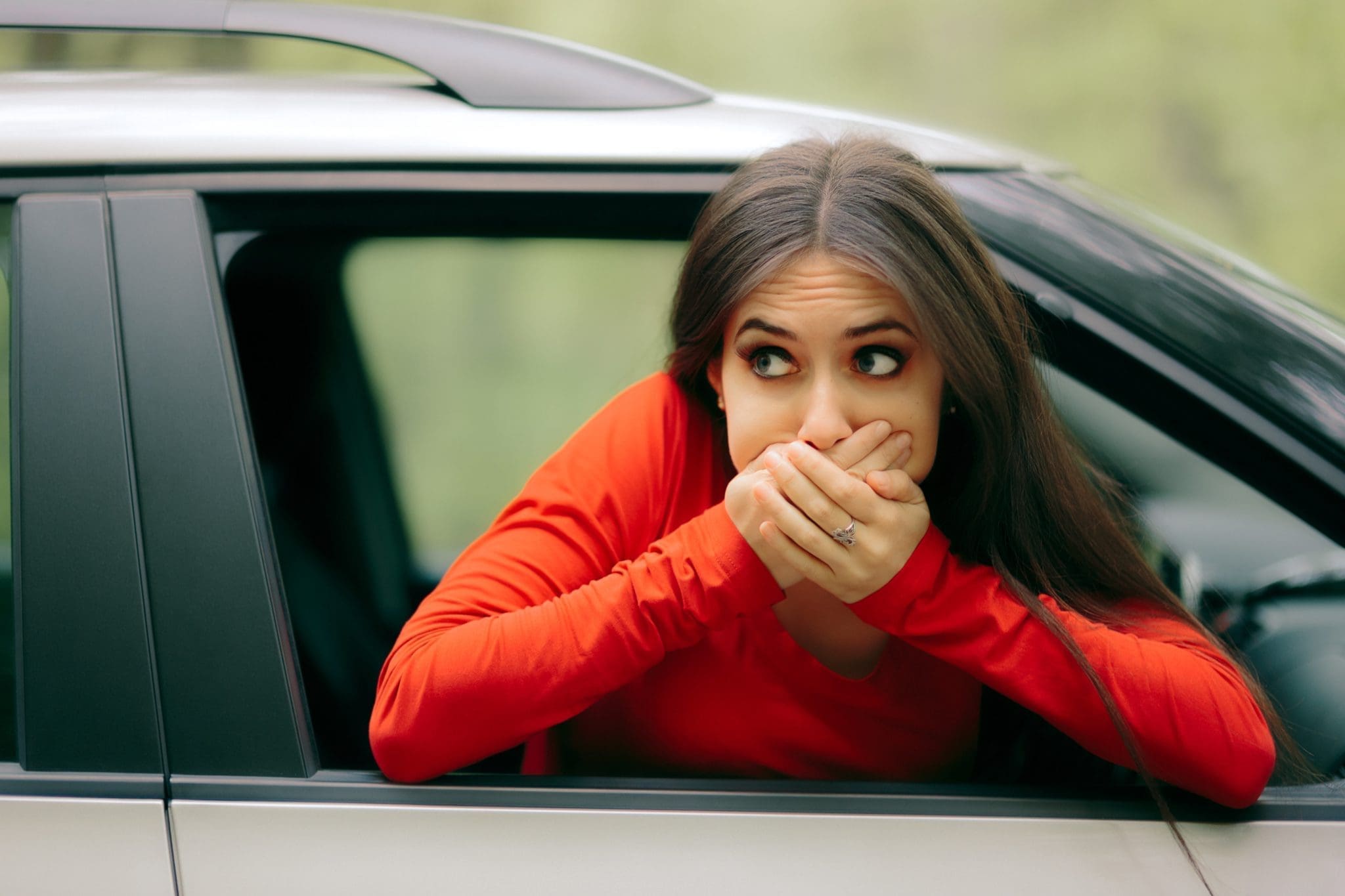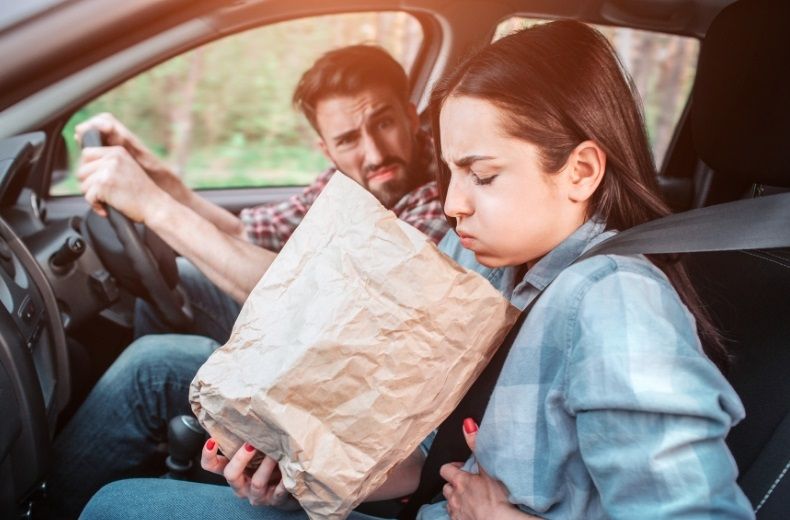Lethargy, fatigue, and nausea can ruin a car trip until you reach your destination. Fortunately, there are several ways to prevent or reduce motion sickness and ways to cope with it. We share some helpful tips.
Feeling sick during car trips is related to the balance organ. This organ sends signals to the brain to “stay still” while also sending signals to the brain that the eyes are sensing movement. This conflicting information completely upsets the brain, causing drowsiness and nausea. Roundabouts and roller coasters can also make people “travel-sick”; watching a movie with 3D glasses can cause similar symptoms.
Women Are More Prone to Motion Sickness
Many people experience nausea during car trips, but some are more prone to motion sickness than others. It is most common in children between the ages of 2 and 10, when the equilibrium sense organs are not yet developed. Women are also said to be more prone to motion sickness than men. The symptoms disappear with age, but if you are unlucky, you may suffer from them for the rest of your life.
What Can I Do for Motion Sickness?
Are you prone to motion sickness? Then, take the best possible precautions for your trip. There are many things you can do before and during your trip to prevent or reduce motion sickness.
Before Your Trip
- Rest and travel when you are tired, as you are more prone to motion sickness.
- Both an empty stomach and a full stomach are the worst for people who get motion sickness. Therefore, eat a small, light meal before departure.
- Choose routes that are mainly long, straight (automobile) roads.
- Soft drinks, alcohol, and coffee make some people more nauseous. So,skip these drinks.
During the Trip
- Drivers are less likely to get motion sick because they can see movement. If someone else is driving, ask if you can sit in the front. You are less likely to get frustrated when you can see everything clearly.
- Long car trip ahead? Take plenty of breaks and go out for a breath of fresh air.
- Keep your eyes on a distant fixed point.
- Try to take a nap.
- Wear (dark) sunglasses in the car. This will calm your vision and make you less susceptible to motion sickness.
- Avoid reading, writing, playing games, or looking at screens. This aggravates nausea. Better to listen to quiet music.

1) Lavender Relieves Tension
In addition to these valuable tips, other natural remedies can reduce or counteract the symptoms of motion sickness. One such remedy is lavender. This natural remedy is a helpful tip against nervousness. Lavender is also a natural sleep aid and ideal for use during stressful car rides. Another useful option is to buy lavender oil and dab it on your wrists. Inhaling this scent just before the trip (but also during the drive) can be relaxing.
2) Use Ginger Against Nausea
A piece of ginger (or a ginger pill) can help with nausea. Not only does ginger help with flu and colds, but it is also a natural remedy often used by pregnant women for nausea. A mixture of tarragon, peppermint, and basil can be taken a few hours before a car trip to prevent motion sickness. You can also put it on a sandwich to take with you when you leave the house. This herbal combination not only helps with nausea and nerves but also has a calming effect on the stomach.
3) Adhesive Bandage Containing Scopolamine
An anti-nausea medication called scopolamine may also be included in the bandage. This bandage should be placed behind the ear 15 hours before travel; it is said to be effective for three days, making it ideal for long trips. Beware of side effects: scopolamine slows reaction time, making it unsuitable for drivers.
Always use caution when driving after taking any medication, and be sure to read the accompanying information about possible side effects. Not sure which medication is right for you? Then seek advice from your doctor.


